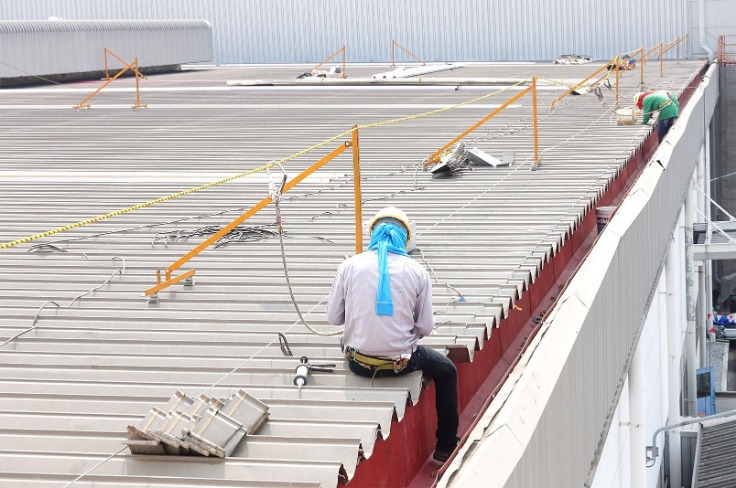When it comes to construction and maintenance, roofing safety is of paramount importance. Ensuring the well-being of workers and maintaining a secure environment can prevent accidents and enhance efficiency. This article provides comprehensive guidelines and answers questions related to roofing safety.
Critical Guidelines for Roofing Safety
1. Use of Proper Safety Gear
One of the most significant aspects of roofing safety is the use of appropriate safety gear. Workers should always have:
- Hard hats to protect against falling objects
- Non-slip footwear to prevent slips and falls
- Safety harnesses and lanyards to secure against falls
Read more about Commercial roofing materials here.
2. Regular Training and Education
Continuous learning and training are vital. Workers should be educated about:
- Proper use of safety equipment and tools
- The importance of adhering to safety protocols
- Recognizing potential hazards
3. Regular Equipment Inspections
Faulty equipment can be a significant hazard. Regular inspections should be conducted to ensure that:
- Ladders are stable and in good condition
- Safety harnesses are free from wear and tear
- All tools are functioning correctly
Common Questions About Roofing Safety
What is the Importance of Roofing Safety?
Roofing safety is essential because it helps in preventing accidents and ensures that workers can perform their tasks without the risk of injury. By following proper safety protocols, the number of workplace accidents can be significantly reduced.
Are There Any Legal Requirements for Roofing Safety?
Yes, there are several legal requirements and standards that must be followed to ensure roofing safety. Authorities like OSHA (Occupational Safety and Health Administration) provide comprehensive guidelines, and non-compliance can result in severe penalties.
How Can Employers Promote Roofing Safety?
Employers can promote roofing safety by:
- Providing regular training sessions
- Ensuring that all safety gear and equipment are readily available
- Encouraging a culture of safety where employees feel responsible for their own and their coworkers’ safety
Best Practices for Roofing Safety
Here are some essential best practices to ensure optimal roofing safety:
- Always use guardrails and toe boards when working on steep roofs
- Never work on a roof in adverse weather conditions
- Keep the work area clean and free from debris to avoid tripping hazards
By adhering to these guidelines and continuously promoting a culture of safety, both employers and workers can significantly reduce the risks associated with roofing jobs and create a safer work environment.
